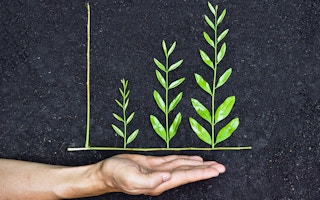The next time you’re deciding whether to buy a service or product from a company, you may want to check if it’s a B Corp.
To continue reading, subscribe to Eco‑Business.
There's something for everyone. We offer a range of subscription plans.
- Access our stories and receive our Insights Weekly newsletter with the free EB Member plan.
- Unlock unlimited access to our content and archive with EB Circle.
- Publish your content with EB Premium.
Among the B Corps that you may already know and whose products you use are Ben & Jerry’s, Patagonia, Couchsurfing International and Etsy. In fact, more than 1,200 firms from 38 countries and 121 industries are now certified B Corps, with more being added every week.
A B Corp is essentially a sustainable business or social enterprise that voluntarily meets higher standards of transparency, accountability and performance. It has earnings in mind – unlike a non-profit – but considers stakeholders other than just investors and shareholders. So its aim is to make money, but in a long-term sustainable way.
While the idea of a sustainable, “non-evil” manner of running a business is not new – business leaders have been talking about the idea since the 1990s - B Lab, the non-profit organization behind the B Corp idea, or certification, wants to institutionalize the concept.
It wants make it globally recognized, to become the business world’s equivalent of the Fair Trade label.
“
Our community of Certified B Corporations hopes to be helpful in accelerating this momentum for people using business as a force for good.
Bart Houlahan, Founder, B Lab
There seems to be some momentum behind this movement. In November, Brazil’s top cosmetics, fragrance and toiletries maker Natura became the largest – and first publicly traded – company to attain B Corp sustainability certification.
Consumer giant Unilever – whose products are used by 2 billion people daily – is also considering becoming a B Corp, chief executive Paul Polman told The Guardian at Davos last month.
Having made some headway in the US – B Lab’s home ground – and Europe, the time may be right to bring the B Corp concept to Asia, B Lab founder Bart Houlahan says.
“The region’s interest in sustainable business, for-profit social enterprise, and impact investing is clearly growing,” Houlahan said at a recent event in Singapore. “Our community of Certified B Corporations hopes to be helpful in accelerating this momentum for people using business as a force for good.”
B Lab is talking to companies and organisations in Asia, including National University of Singapore, and The Family Business Network Asia, to find ways to raise awareness of sustainable businesses and of the B Corp concept here.
It is also keen to use Singapore perhaps as a base to expand in the region, where only a handful of companies are certified B Corps.
The city-state is after all already home to about 140 international non-profit organisations with a social, humanitarian or environmental focus, and is a popular base for these organisations for their work in the Asia Pacific region.
Mongolia’s New Media Group is the so-called Founding Certified B Corp in the region. It is made up of several subsidiaries focusing on commerce, design, investment, marketing and technology, and deems itself a social enterprise that “empowers human-centered business”.
Elsewhere in the region, there is one B Corp in Vietnam, one in Taiwan, two in Hong Kong, three in India and seven in South Korea.
How then does a company become a B Corp? Firstly, it must receive a minimum score on an free online assessment for “social and environmental performance”. Then, it needs to integrate B Lab’s requirements, basically a list of commitments to stakeholders, into governing documents.
The certification comes with an annual fee ranging from $500 to $25,000, depending on the size of the company.
B Lab believes that the certification gives many tangible benefits to businesses such as access to other companies with a similar social mission, the ability to attracted talented employees and long-term investors, as well as favourable publicity.
Most importantly, B Corps should aim to become a movement that leads to a redefinition of a successful business.
“Government and the nonprofit sector are necessary but insufficient to address society’s greatest challenges,” B Lab says. “Business, the most powerful man-made force on the planet, must create value for society, not just shareholders.”








